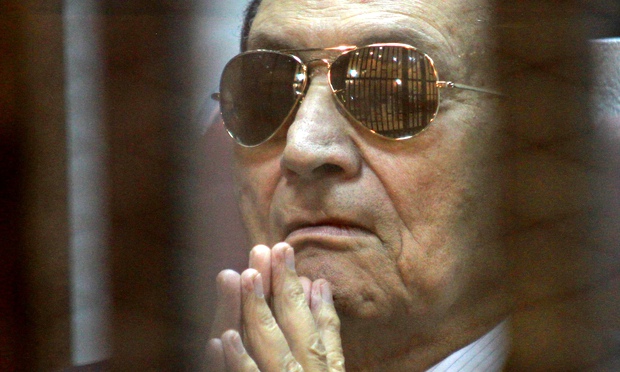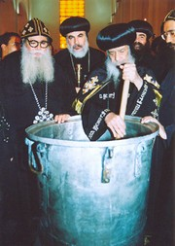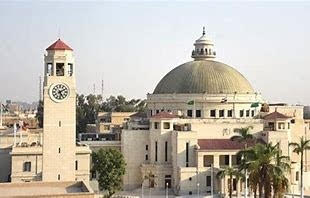Saturday 29 November saw Egyptians glued to their TV screens awaiting the verdict in what the media had come to term the ‘trial of the century’. When Judge Mahmoud Kamel al-Rashidi pronounced his verdict acquitting former President Hosni Mubarak of the charges against him, it practically split viewers—and Egyptians at large—into two camps: one cried in jubilation and another wept in frustration. The judge dismissed the case against Mubarak of conspiring to kill protestors during the Arab Spring uprising which led to his stepping down in 2011, and cleared him and his sons Alaa and Gamal of corruption charges involving a gas deal with Israel. Mubarak had been sentenced to life imprisonment for the first charge two years ago, but a higher court ordered a retrial. The court also acquitted Mubarak’s Interior Minister Habib al-Adli of killing the protestors. The acquittal does not mean that the 86-year-old former President will walk free. He and his sons are serving a three-year prison sentence—he is under house arrest in an army hospital on account of his health condition—on embezzlement charges. But that morning his supporters broke into joyful jubilation once the verdict was out. His sons kissed him on the forehead and lovingly patted his head and shoulders as ululations and cries of “Congratulations, Rayiss! literally Leader or President” broke out.

Who’s guilty, then?
Predictably, the street and online social media were quick to respond. The bitterest criticism came from those who had lost sons or relatives to the 2011 uprising. A young man who had lost a friend back then fell to the ground, caught handfuls of dust and threw them upon his head and wept. “If Mubarak and Adli are innocent, then who’s responsible for killing the protestors?” many bloggers asked. One posted: “Even if we assume some third party had killed the protestors, where were you [meaning Mubarak and Adli]? Why didn’t you do anything about it when you had that authority?” But others reminded that back then, just two days into the uprising, the Muslim Brother-led Islamists went on a torching spree in which they attacked the police, burned a number of public establishments and police stations, and broke into prisons and set the inmates out. That day, 28 January 2011, the Interior Ministry handed over the security of the country to the military and withdrew in defeat. That was before the protestors were killed; it was the police that was under attack. As for who killed the protestors, damning evidence has since come up through in leaked intelligence reports and court testimonies that it was the Muslim Brotherhood (MB) that was mainly implicated in the killings.
Early Saturday evening, Cairo’s topmost news site www.youm7.com set up an interactive folder for readers to answer the question: “Who killed the protestors?” Some 60 per cent of the comments insisted it was the MB who did the killings, 10 per cent said it was Mubarak and Adli but that the evidence had been obscured, and an insignificant portion said they didn’t know.

“Don’t laugh too soon”
Outstanding, though, was that almost a third of the comments on the Youm7 news site question said nothing at all about killing the protestors but ranted about the corruption of Mubarak’s rule and the ‘ruin’ it had brought on the country. Predictably, the former president’s supporters reminded that this was mere Islamist propaganda fed to the people at heyday of MB. Mubarak, they reminded, left Egypt a secure State, the Egyptian treasury flush with cash reserves, the economy thriving, and with freedom of speech to the point that the papers and TV channels criticised his regime non-stop to their heart’s content.
Nonetheless, not a few bloggers insisted that Mubarak had “robbed and destroyed” the country and should never have been acquitted. “The trial is a farce in a farcical country,” was a comment by someone who signed as Ali Khalil on the website of the independent Cairo daily al-Masry al-Youm.
A comment read: “Don’t laugh too soon, Hosni, you’re still serving an irrevocable prison sentence for three years. If you managed to fool one judge, you’ll never fool the Divine Judge who never slumbers or sleeps. As for you Judge Rashidi, you’ll end up rotting in hell.” But another comment replied: “Who d’you think you are to be handing out seats in hell or heaven?”
Arab Spring revolt in vain
For all appearances, not much reason was exercised on the social media. Obviously, a portion of Egyptians simply wants to see Mubarak convicted, for what? This is a question with no obvious answer. One Asmaa al-Masri blogged: “I know of someone who got cancer because of the carcinogenic substances Mubarak brought in the country, another who contracted lung cancer because of the air Mubarak polluted, a third who got kidney failure because of the filthy water Mubarak contaminated, a fourth who contracted Hepatitis C, and a fifth who could never get married because of Mubarak’s lost social justice. Then Mubarak gets acquitted? Those who defend him should just tell me why they do so.”
The young men who took part in the Arab Spring uprising were especially galled because they believed they had waged their ‘revolution’ for nothing. They insist the MB hijacked their revolution, yet throw the blame on Mubarak. Wael Ahmed who lost his brother Ihab in the uprising laments the court ruling, claims the ruling means the Mubarak regime is back and the Arab Spring uprising was in vain. This view was voiced by many, with Ihab Milad, a young engineer, mocking: “the next elections in Egypt will be contested by Sisi and Mubarak.”
But the widely held view in Egypt now is that the entire Arab Spring movement was but a conspiracy between the Americans and the MB for the Islamists to come to power. Seeing the outcome of the Arab Spring not only in Egypt but in all the Arab countries who sustained it, it is difficult to refute the conspiracy claim. Egyptians consider themselves fortunate to have succeeded in overthrowing the Islamists in 2013 but Syria, Iraq, and Libya were not so lucky.
Demonstrations
On the ground, protest broke out on Saturday near Tahrir Square in Cairo, and on Sunday at Cairo University. The latter came as no surprise; the Islamist MB student movement calls for and wages violent protest, and have a strong showing on campus. The acquittal of Mubarak was, as one blogger so aptly put it: “An opportunity not to be missed”. Their numbers were in the hundreds, and the police took care they do not spill out of campus and into the streets.
But the protestors at Tahrir were a different matter. They made up to some 1000, and were mostly led by secular activists. This did nothing to endear them to mainstream Egyptians who now view these activists with a lot of suspicion, insisting they serve the US agenda which propagated and endorsed the Islamist-oriented Arab Spring. Again, the vociferous cry was about who killed the protestors in 2011, and “where are the rights of these ‘martyrs’?” President Sisi responded by taking action for better compensation and benefits for their families.
On Tuesday, the Prosecutor-General Hisham Barakat appealed the acquittal ruling.
“I did nothing wrong”
Mubarak’s supporters also had their say. The overwhelming sentiment among them was that, finally, justice has been served. Ibrahim al-Gabali wrote on Facebook that Mubarak had served Egypt as vice-president and president for 36 years. “He had his positives and his negatives. Now justice has had its say. We trust and respect our judiciary, and nothing warrants that unreasonable brouhaha some are raising.”
“Today’s ruling,” blogged Ahmed Samy, “has at long last recovered our faith in justice. Throughout his years in office Mubarak earned the right to be a leader. For 30 years his top priority was always Egypt. We never doubted his patriotism and that he never killed the protestors. And we saw the anarchy that took hold of the country after he left. He could see that once he left the Islamists would swiftly step in and ruin the country, and he unfailingly warned of that but no one listened; they thought he was only keen to retain his authority. When he realised the Arab Spring uprising would cause intolerable bloodshed, he honourably stepped down to avoid the bloodshed. And he remained in Egypt, together with his whole family. The only reason any man would do that is if he is sure he did nothing wrong.” Exactly what Mubarak told a private Egyptian broadcaster over the phone: “I did nothing wrong.”
A comment posted by ‘an Egyptian doctor’ news site www.youm7.com read: “The court has now had its say. Why don’t we just move on with our lives?” The sentiment was echoed by many on the street. A middle-aged taxi driver in Downtown Cairo near Tahrir Square bitterly complained: “Why all the turmoil? Haven’t we had enough? Can’t we close that chapter and get along with our lives?”
Watani International
3 December 2014
















